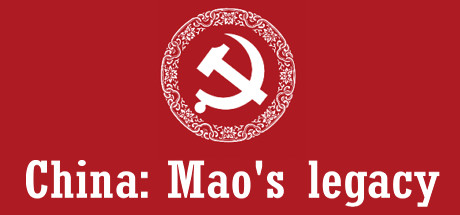
Update for Wang Ming near done, couple of event options left.
Introduction/to come
This comes from a reference list I made to remind myself when some diplomatic and otherwise important events would occur, and what resources choosing a given choice would require.
I haven’t (yet) listed the existence of every event choice, just what resources must be spent for some prominent ones with a cost.
Going forward, I may also try to add:
-Notable consequences, like, for example, sizable approval changes that could cause a revolt, coup, or embargo
-Whether the event is relevant to a particular achievement.
Disclaimers: This is very much a work in progress- potential events that may trigger if playing liberal or under different geopolitical circumstances have yet to be investigated. There are a lot of potential small variables, like state system, precise faction balance, party leadership and party line, whose impact I’m not entirely aware of and are a bit more of a pain to measure, such that a choice’s exact requirements may be difficult to know from empirical observation alone (or just bothersome to test). In particular, some choices which spend a certain number of agents seem to require that more be stored; I’ve tried to note events where I’ve personally experienced this, and will test for more. I believe that some choices require China’s Influence stat to have reached a certain level to succeed, but I’m afraid that’s also a bit of a pain to test. A future patch may also change things, so I can speak only for the patch iteration this is based on.
Edit 5/29/21: THE DEVS LENT ME THE RELEVANT CODE, GAMERS! Updates to the choice requirements incoming!
This guide’s focus is to aid playthrough planning. To encourage you, reader, to see what can happen in trying out these choices for yourself, I’ll try to leave to your imagination most of what a choice will result in aside from stat changes. Again, the focus for the moment is on diplomatic events, but some domestic events that can help define a playthrough will also be touched on.
From the top:
1976
-4/76: Thailand election: 2 agents/1 money, or 2 army. The former seems to make giving 2 money to the CPT on the diplomatic screen unnecessary to prepare for 10/76, while giving aid is still required to start the war if the latter is chosen. Giving the CPT 2 money on top of choosing the former makes no difference in starting warscore.
-9/76: China Mao dies: 1 money. Party coups can now happen much more easily, the CMC position becomes available, political doctrines can be changed and Pol Pot can be removed.
-10/76: Thailand war: 3 army/4 agents, if preparations were made prior.
-12/76: Cambodia: A war will trigger if Pol Pot remains. 3 agents, or 1 money/5 army; +15 or +10 warscore.
China: Choice to continue or end the Cultural Revolution- requires that Wang Hongwen took power from Hua Guofeng. The modifier precludes some minor domestic events from happening and boosts income by 0.5, agent accumulation by 0.2, and army accumulation by 0.6, and then after Mao dies will add 0.5 to popular support and 1 to liberalization and decrease living standards and US relations by 0.5, unless and until you end it by significantly liberalizing certain doctrines.
If you choose to keep it here, which will give a significant one-time decrease both party and popular support and spike to liberalization, you’ll want to either cultivate party unity and popular support beforehand with Soft ministers, propaganda and party envelope funding to avoid uprisings, or stock up on army and agent power to crush them. 10 army or agents is necessary to crush a party coup, 10 army or 15 agents to crush a popular uprising. If popular support is low and liberalization is high enough, you may need to crush multiple uprisings.
1977
-3/77: India election: 3 money/5 agents or 5 agents. Tthe latter choice can’t be picked if Left Radicals are the leading faction. Naxalites can only be supported after this event if the bottom choice is taken. The latter choice will also restore 3 communication structures with the USSR.
-4/77: China: Effectively 2 money to switch to a planned economy, one for the actual event choice and one to choose which sector to focus on.
-7/77: Pakistan coup: 3 money/6 agents.
USSR Kulakov: 5 agents, or 2 money.
-late 9/77: Egypt rebellion: 5 money diplomatic interaction prior + 4 money/6 agents, or 2 money/2 agents. The first option will be unavailable if the leading party faction is Moderate, both if Reformers or Liberals.
-11/77: Hungary Bela: 8 agents, or 3 agents/1 army. The 8 agent choice decreases USSR relations by 30.
Myanmar: 3 money, or 8 money diplomatic interaction prior + 2 money/4 agents.
Greece election: No cost for any. Not sure what determines which choices can be picked- under near-equal faction balance, any choice can be picked regardless of leading faction. Faction balance or another factor might be key. Might come back to this.
-12/77: Iraq purge: 5 agents. Requires at least 5 influence to succeed
1978
-1/78: Iran rebellion: 5 agents for any choice. Some choices may be unavailable depending on leading party faction. Supporting the faction you choose in this event (other than the islamists) 3 times (requires 6 money/9 agents each time) afterwards should guarantee they win, but it’s also sometimes possible for a faction to win with only 2 supports. Not sure why- it may have to do what months you choose to give support, but that’s just a guess. Will come back to this.
-5/78: Afghanistan factions: 3 agents, or 5 agents, or 6 agents. It may be necessary to store more agents than end up being used- at least once I couldn’t seem to support the last option unless I had a total of 15 agents, but other factors may have been involved. The second choice may be unavailable if the Reformers or Liberals are the leading faction, third if Left Radicals.
-10/78: USSR Masherov: 8 agents, or 5 money.
-11/78: Vietnam CMEA: 3 agents.
-12/78: Algeria succession. 6 agents, or 4 agents, or X. Will come back to this one.
1979
-1/79: China agriculture: For 5 money the third agricultural technology can be bought immediately, possibly restricted by leading faction. May come back to this one.
-2/79: Vietnam war/reconciliation: If their entry into the CMEA was prevented, the choice to trade with them will be available, which will cost 10 party unity but boost soviet relations by 20 and restore 4 communication structures with them. Right after this event is the earliest that relations with the USSR can be restored, assuming a war isn’t fought with Vietnam at any point.
Iran: The revolution will end.
-3/79: After this month, it will require 25 communication structures restored and party support of 90+ to restore relations with the USSR, rather than 20 and 70+.
-5/79: China Economic org: 15 money, happens if you haven’t already joined the CMEA or Non-Aligned Movement. As long as you choose not to create or join any alliance, this event can be repeated any time afterwards by clicking the Economic Alliance button in the Doctrines tab.
-6/79: China Military org: 5 money/30 army/10 agents, happens if you created your own economic alliance last month. Same option to repeat as Econ org event.
-6/79: USSR Kunaev: 10 agents, or 3 agents if USSR relations are restored.
-7/79: USSR Andropov: 10 agents/5 money, or 7 money.
India Janata redux: 6 agents/10 money for both. Occurs if the bottom option wasn’t picked in 1977.
-8/79: Mongolia policy: 3 money, or 1 money, or 6 money. The last option will change the Territorial System doctrine to Federation if it’s currently Unitarism. The 1 money option may be unavailable if Moderates are the leading faction, the last option if Conservatives, and all three options with costs if Left Radicals. More options may be unavailable if you still have the Cultural Revolution modifier.
-9/79: Afghanistan tension: 2 money. May occur if the lowest choice wasn’t picked in the 5/78 event? Might come back to this one.
-10/79: Japan election: 5 agents in prior diplomatic interaction/4 money/6 agents.
1980
-1/80: Afghanistan: lots of potential events depending on what factions have been supported previously, though most options don’t require large amounts of resources invested. Will come back to this one.
Olympics: 4 money, or 4 money, or 4 money, or 20 money. The top option will restore communication structures with the USSR. The second, third and fourth options may be unavailable if the Liberals are the leading faction, third and fourth if Reformers, third if Conservatives, second and third if Left Radicals.
-2/80: China Reformers: If the Left Radicals have a larger share of the party seats than the Reformers and party support is at least 80, the choice to purge a certain somebody will be available. No cost.
-4/80: Zimbabwe: 5 money.
-5/80: Yugoslavia Tito: Presumably the leading faction dictates what options are available. None seem to expend resources. May come back to this one.
-6/80: Somalia unrest: 8 money/5 agents/5 army, or 8 agents.
-8/80: UAR: 7 money/5 agents. Faction balance may determine if the choice is available. Occurs if Egypt is reformist due to the 9/77 events, I think.
South Korea incident: 10 agents/8 army.
-10/80: Poland Solidarity: 20 money/5 agents, or 30 money/15 agents/Influence over Albania, or 5 agents/5 army/WPO membership. May come back to this one.
1981
-3/81: Yugoslavia Kosovo: May not trigger if China lost influence over Albania. 5 money/agents, or 10 money/10 agents.
-8/81: Iraq nuclear weapons: May not occur if Iraq joined the UAR. The outcomes will differ depending on the outcome of the Iranian rebellion, and potential subsequent war. Will come back to this one.
-9/81: Romania debt: 10 money/WPO membership, or 30 money. The second option may be unavailable if the party’s leading faction is the Liberals or Reformers.
-11/81: Albania coup: 8 agents, or No cost?/influence over Albania has been kept. May come back to this one. The first option may be unavailable if the party’s leading faction is the Liberals or Reformers.
1982
-1/82: Golden Triangle: 2 agents/2 army, or X. Will come back to this one.
-4/82: Hungary debt: 35 money, or 15 money/8 agents, or 45 money/10 agents. Occurs if Hungary’s government is reformist, which depends on the outcome of the 1977 event. Unsure whether the lowest option in that event (no price) influences the choices in this one otherwise. May come back to this one.
UK Falklands war begins
-6/82: Lebanon war begins
-11/82: USSR succession: No cost for any? USSR relations restored may be necessary to pick one of the choices.
1983
-2/83: Yugoslavia Commission: 20 money/5 agents, or receive(not spend!) 3 agents, or 2 agents, or X. Will come back to this one.
-8/83: Upper Volta/Burkina Faso: 5 money/3 agents.
-10/83 Rangoon bombing: A new Korean war can now be started after first sending 2 money/5 army in a diplomatic interaction, then spending 5 money/10 agents in another interaction to kick it off.
-12/83 Bangladesh protests: 10 agents.
1985
-3/85: USSR succession: X.
-6/85: UNITA Conference: 10 agents, X
-7/85: Youth Festival: X.
Schengen Agreement: X, about 27 money.
Addendums
-My advice if you want to have access to every event choice you might want to pick, and also to support the maximum number of coups in Africa, is to keep agent funding high, possibly maxed, from as early on as possible. Also, wait until later to start funding coups if you want to get all of them- you can only increase your maximum investment, and therefore your agent and army funding, if your budget keeps growing, and the strength of pro-Chinese forces will decline every two weeks if you don’t immediately trigger a coup after giving support.
Not counting Upper Volta/Burkina Faso, currently there are 15 countries to support, and supporting pro-Chinese forces in them 4 times (for a total of 80 force level) will guarantee a successful coup. This means stockpiling 16 money/32 agents/40 army per country, times 15 for 240 money/480 agents/600 army if you want to get all of them. With all technologies researched and equal funding, army power ends up growing significantly faster than agent networks and isn’t needed as much for events. If you’re lacking money in the end you can simply divest from areas that no longer need it, but if you haven’t built enough agents or army by the end of 1985 there’s not much you can do. Keeping agent funding maxed from as early as possible also tends to yield enough to pick the choices you want and also engage in party politics a good amount, while ramping up army funding can wait a lot longer.
-In case anybody else didn’t realize this the first time, creating a military alliance will count as “entering the arms race.” This means that if your accumulated army power gets too low after you’ve done so, you can begin to lose influence, which can heavily impact your rate of diplomatic intervention point accumulation while a war is happening, which is used to send aid in them. The level of army power you need to maintain to keep your influence while part of the arms race usually isn’t that high (around 20-something, it usually seemed) and can be checked in the Influence section of the View tab.
-After restoring relations with the USSR, the first time you click the CMEA interaction, you’ll “join as an observer,” which doesn’t actually count as placing you in an economic organization and seems to be the equivalent of simply gaining the USSR as a trading partner. You can do this and then also create your own economic alliance without breaking any connections, including your alliance with Albania (with will break if you enter as a full member). If you choose to join the CMEA in the event where you can make your own economic alliance, you will skip this stage and become a full member of the CMEA, which will also happen if you click the CMEA button a second time.
Good luck!
I hope you enjoy the Guide we share about China: Mao’s legacy – Walkthrough – Basic Guide for Beginners; if you think we forget to add or we should add more information, please let us know via commenting below! See you soon!
- All China: Mao's legacy Posts List


Leave a Reply